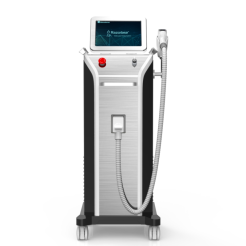nature bud &1561 Pioneer
Ambient diffuser with black sticks included to decorate and perfume your spaces. Sparkling and pungent like the passage of coins from one hand to another; the combination of mandarin orange and basil awakens the desire for great ideas and the risk of diving into something new and unknown in search of success. TOP: Lime, Tangerine, Bergamot; HEART: Basil Leaves, Lilac, Iris; BASE: Thyme, Vetiver
Product Description
In 1360, Giovanni was born in Florence to an ordinary family of five children. Giovanni was the fourth one. His father died of illness when he was very young.
It is very difficult for a widow to live with five children.
Giovanni started working at a very young age, bearing the burden of sustaining a family. Because of strong sense of family responsibilities, he knew from an early age that only hard work and progress can change the destiny of life. His father used to work as a wool collector. The children were familiar with collecting and carding wool from an early age. Under the mercantile guild system, Giovanni and his brothers, orphans of the wool industry, were allowed to collect wool from various sheep farms, while his sister and mother combed the wool at home.
Giovanni's hard-working, down-to-earth nature soon helped him establish a foothold on all the pastures of Florence at the time. And Giovanni was so honest that he did not take profits out of the herders' pockets because of the turmoil, giving him a good reputation as well as more business.
In 1385, Edoardo Bueri, from a family of ancient lineage, admired Giovanni's steadfastness and made him his son-in-law. The dowry that the marriage brought to Giovanni was the most critical start-up capital for his expanding career.
Besides the business of knitting wool, clever Giovanni quickly entered the woollen industry downstream industry: wool weaving industry. Just a few years later, thanks to the upstream raw materials cost advantage, Giovanni's career was going very well. He always kept hard-working attitude. In order to better develop the business, he expanded into the higher-end silk industry. In the process of managing silk and fine woven fabrics, Giovanni accumulated a large number of customers. Using the principle of "maximization of market resources", he added "leather industry" and "herbal fragrance guild".
As Giovanni's business became more successful, his enterprises grew. Trading goods and money became a challenge in the fragmented Europe of the time. In order to make the most of the rules in favor of his guild, Giovanni, with his wealth of capital and connections, succeeded in joining the Money-changers Guild.
What really gave Giovanni a big jump in his career was his acquaintance with the cleric Baldassarre Cossa!
Cossa came from an old family, was a clerk and a pirate; because none of these were exciting enough, he joined the church and became a priest.When Giovanni first saw Cossa, he looked ragged and worn, but the former pirate priest was a famous adventurer and speculator. Giovanni saw in his shrewd eyes a sophisticated and determined ambition for success.
Rather than spurn him, as other guilds had done, Giovanni decided to bet on cash-strapped Cossa, supporting his candidacy. In later years, Baldassarre Cossa became a bishop, then a cardinal; eventually, he was elected pope in 1410 and renamed John, or Antipope John XXIII.The first thing John did when he was elected pope was to give back to his friend Giovanni. At the same time, he needed a bank he could trust. At that time, the Papal States were the only major international power with “income”, among many European countries. So Giovanni, who did not like politics, was formally brought into another, much larger, political and business kingdom. The pope needs bankers around him to move money and pay for his spending abroad. Of course, the papacy is so rich that the pope rarely borrows from bankers, mainly to pay bills and make deposits. The Medici Bank was formed and took full control of the papal accounts, becoming "God's banker".
The Medici Bank adopted more scientific and advanced accounting methods such as “Double-entry bookkeeping system” and the form of joint stock. This was a far cry from the pre-florentine banks. As a result, the Medici Bank has been regarded by many historians as the “Founding Father” of modern finance. In the years that followed, the Medici Bank became not only the most successful Italian business group, but also the most profitable family business in Europe. The Medici business empire began.
In 1424
Giovanni and his Medici Bank were given the authority to mint coins and create money. Two years later, Giovanni financed the building of the Cathedral of San Lorenzo and the Florence Orphanage: this further enhanced the House of Medici's reputation among the general public.
From 1422-1427
In order to raise enough tax money in a fair way, Giovanni pushed for a new type of tax management, called “Property registration”. Florence won the war against Milan but spent a lot of money; he led the way in donating war funds, which also earned Giovanni wide acclaim and popular support.
Although his family's wealth soared with the growth of the family business, Giovanni maintained a simple, low-key lifestyle and warned future generations not to splurge. The descendants of the Medici family do not need to rely on gold to show status, but need work, talent and character to convince people.
In 1429
Giovanni died and his commercial empire was inherited by his art-loving son, Cosimo, who disliked politics and business.
Despite Giovanni's deathbed request for a simple and quiet funeral, Florentine crowds flocked to the Cathedral of San Lorenzo to honor the old man and thank him:
For the great contribution to the victory of Florence,
For providing employment basis for people's life and work,
For providing a place to live for orphaned women,
For the great contribution to the prosperity of Florence.
Mob.: +1 6562050849










